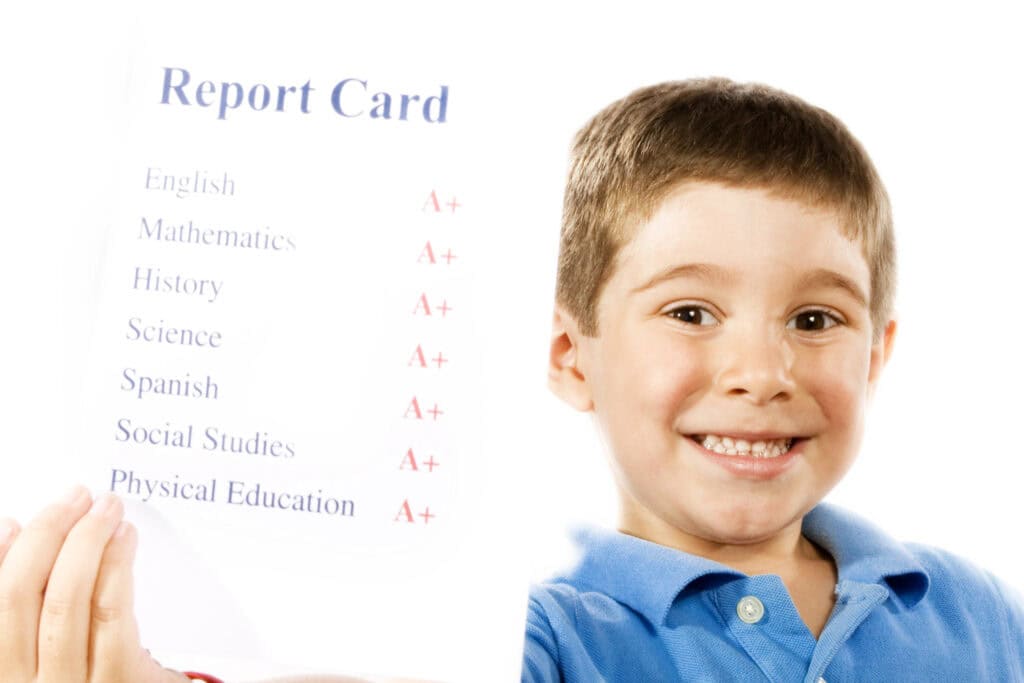
Ready or not, the new school year is here! Backpacks are being packed, routines are falling back into place, and families everywhere are gearing up for the mad dash of early mornings, lunchboxes, homework and after-school activities.
As the school year kicks off, many parents are asking their kids that familiar question: “So, what are your goals for this year?” If your kids are like most, the answers probably sound something like:
Make all A’s.
Make new friends.
Don’t get in trouble.
Make the team or score more goals.
Those are great goals. But what if the most important ones your kids set this year have nothing to do with school performance? What if the goals were about who they’re becoming – not just what they’re achieving? That applies whether your child is 7 or 17.
As parents, we often measure success by grades, behavior or activities. But the kids who actually thrive long-term aren’t just high-achievers, they’re deeply grounded. They know who they are, where they’re headed, and what matters most in life.
So instead of focusing only on academic goals, what if your family set life goals in five key areas this school year: Spiritual, Relational, Financial, Intellectual and Physical?
Here’s how.
1. Spiritual Goals: Anchor Identity Early
Even young kids wrestle with big questions: Who am I? Where do I fit in? How can I make a difference? Helping them connect their identity to something bigger gives them confidence and resilience. Here are a few spiritual goals to help your kids think about.
For younger kids: Memorize and repeat a short faith declaration each week.
For teens: Encourage journaling, church youth group involvement, or a daily spiritual habit.
Harvard’s Human Flourishing Program found that kids with regular spiritual practices are 18% more likely to report happiness and 33% more likely to serve others.
2. Relational Goals: Guide Their Tribe
Whether it’s a kindergartner learning to share or a teen navigating peer pressure, relationships shape our kids more than we realize. As I often say, your tribe determines your vibe. Here are a few relational goals to help your kids think about.
For younger kids: Set a goal to befriend a new classmate or write a kind note to a teacher.
For teens: Identify what makes a healthy, life-giving friendship and how to have one. Teach them to be the kind of friend they want to have.
The National Institutes of Health, Child & Adolescent Development found strong peer connections reduce the risk of anxiety, depression and poor academic performance.
3. Financial Goals: Teach Stewardship Early
Money management isn’t just for adults. The earlier kids learn to manage money, the more confidence and freedom they’ll have later in life. Every child should be taught these four habits: Work. Save. Spend. Give. Here are a few financial goals to help your kids think about.
For younger kids: Use three jars – Give, Save, Spend. Let them divide birthday or allowance money.
For teens: Set a savings goal, give to a cause, or open a student account.
According to the University of Cambridge & Money Advice Service, children’s money habits are largely formed by age 7.
4. Intellectual Goals: Spark Curiosity
School teaches what to learn. As a parent, you get to help your kids discover why learning matters. When children pursue personal interests, they grow into lifelong learners. Readers become leaders! Here are a few intellectual/growth goals to help your kids think about.
For younger kids: Choose a topic they love – animals, space, sports – and read or explore it weekly.
For teens: Encourage a passion project like writing, coding, art or content creation.
Stanford Center for Opportunity Policy in Education found that project-based learning increases retention and motivation by 70%.
5. Physical Goals: Build Habits, Not Just Hustle
Health isn’t just about sports or physical appearance, it’s about sustainable rhythms that build energy, focus and confidence. As James Clear writes in Atomic Habits, “You don’t rise to the level of your goals. You fall to the level of your systems and habits.” Here are a few physical/health goals to help your kids think about.
For younger kids: Set a bedtime goal, limit screen-time, or establish a healthy eating challenge.
For teens: Build routines – going to the gym, drinking plenty of water or getting 8 hours of sleep.
The Centers for Disease Control and Prevention found just 60 minutes of daily physical activity improves memory, reduces anxiety and boosts classroom performance.
Parents, what if this year, we helped our kids aim higher than just making the honor roll?
What if we asked:
Who do you want to become?
What kind of friend will you be?
How will you grow in your faith, thinking and health?
Because real success isn’t just about what our kids do, it’s about who they’re becoming.
So whether your child is 7, 17 or somewhere in between, start this year with goals that build their future, shape their character, and give them something far more powerful than a perfect GPA: give them a life that wins.
Rodney Gage is a family mentor, author of The Winning Family: 5 Essential Shifts Every Parent Needs to Win at Home, and founding pastor of ReThink Life Church in Lake Nona. For more parenting resources, visit http://thewinningfamily.com or http://rethinklife.com.


